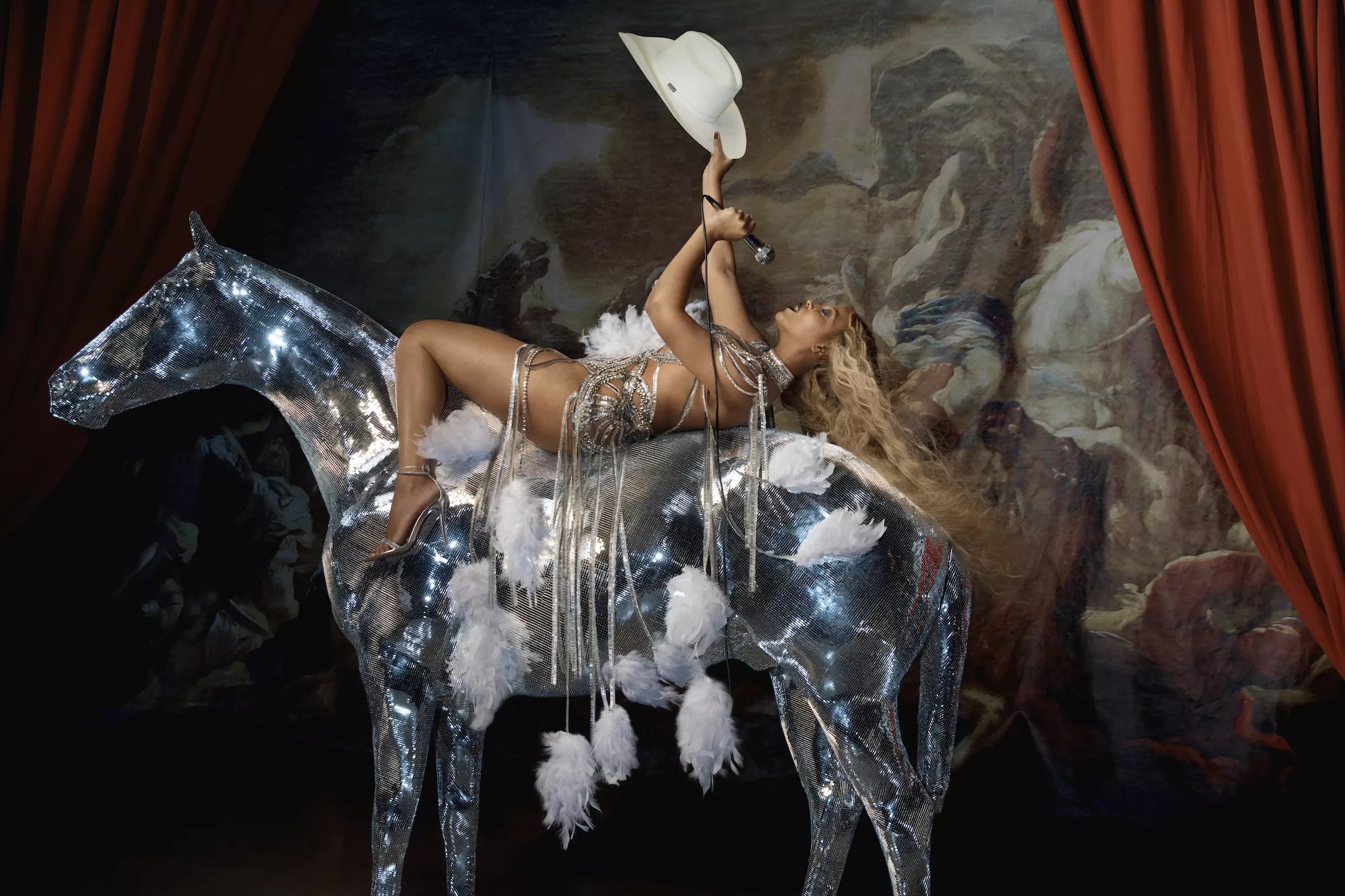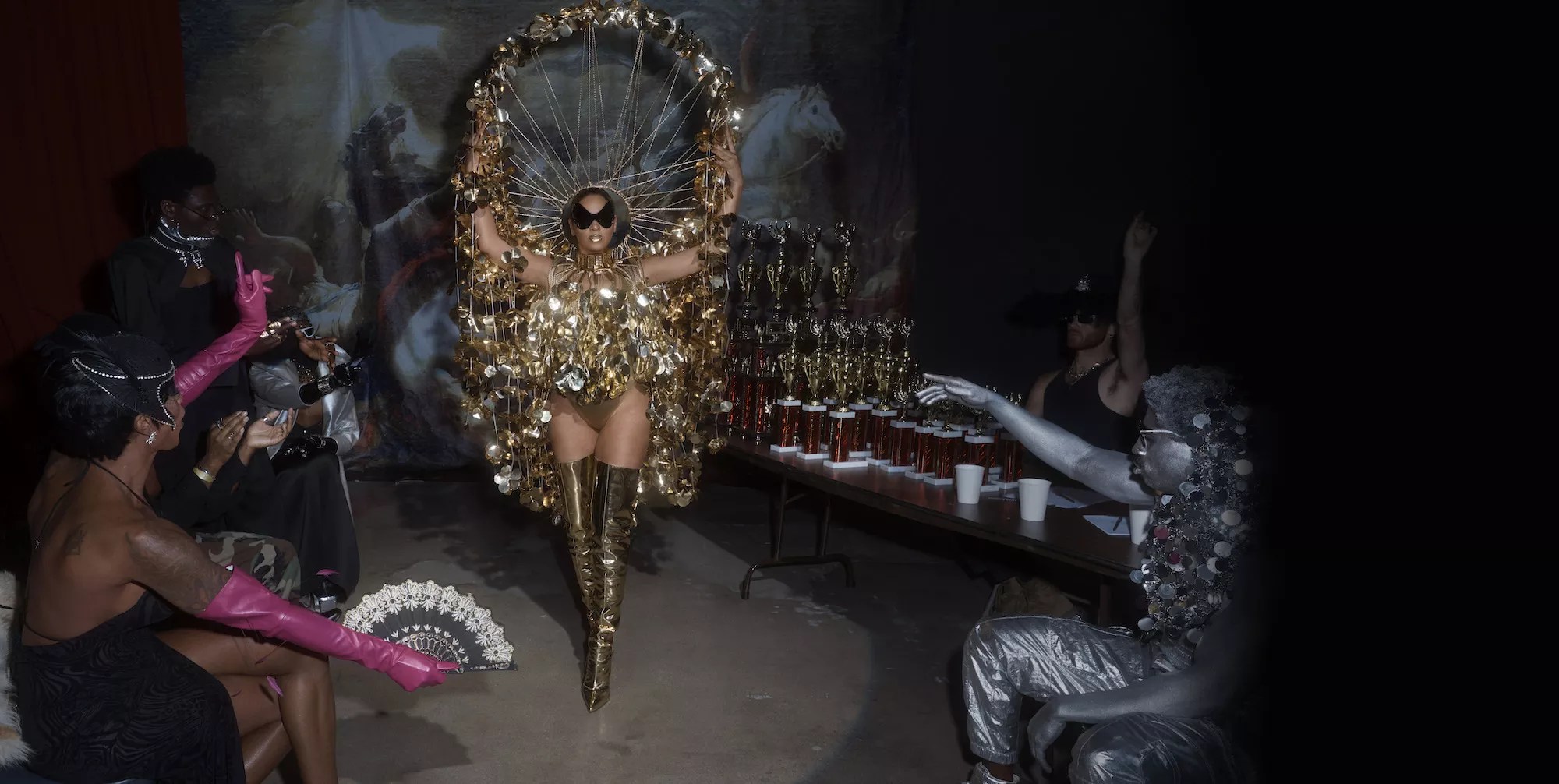
Photo by Carlijn Jacobs

Audio By Carbonatix
Twenty twenty-three marks 20 years since Beyoncé power-stomped into our lives in red pumps for “Crazy in Love,” making her solo debut and launching a career that has rivaled only the greatest names in modern music history. Two decades later, she still has her stiletto heels on our necks.
Now she’s making her way to South Florida on Friday, August 18, at Hard Rock Stadium as part of her Rennaissance World Tour, which kicked off in Stockholm in May.
As part of Destiny’s Child, Beyoncé had already created a spate of indelible songs that have withstood the test of time, with “Say My Name” being chief among these. The song earned Beyoncé her first Grammy Award in 2001. This February, 22 years later, she became the most-awarded Grammy winner ever.
Yet there still appears to be a pervasive desire in some circles to undercut the accomplishments of this once-in-a-generation artist. Sure, some of this dismissiveness is found in the usual places where contrarianism thrives – toxic comment sections – but it’s also evident in some of the same spaces that laud her, including the Recording Academy. Beyoncé is the most awarded artist in that institution, but the woman who crafted Beyoncé, Lemonade, and Renaissance has famously never won a Grammy for “Album of the Year.” Adele all but apologized for beating her in the category in 2017, and despite her 32 wins, Beyoncé has won just one award in the Big Four categories, going a shocking 1 for 18 for her “Album of the Year,” “Best New Artist,” “Song of the Year,” and “Record of the Year” nominations.
Perhaps the most popular critique of her career is the perception that she does not write her songs or that too many people help her do so. This is a prevalent argument among detractors, but even some of her former collaborators have echoed those sentiments. After the release of Renaissance last year, songwriter Diane Warren, who worked with the singer on her (boring AF) ballad “I Was Here,” wondered aloud why more than 20 writers were credited on the (decidedly not boring AF) track “Alien Superstar.” Her tweet ended in an apology after another Beyoncé collaborator, The-Dream, was compelled to offer a brief history of sampling and its crucial role on the album. Beyoncé meticulously credited the samples and interpolations to Renaissance, resulting in a collage of names that read like citations in a sonic thesis about the history of Black dance music. Her collaborators should be considered an extensive ensemble or music collective rather than a group of men guiding Beyoncé through music-making.
It’s possible some of these perceptions persist because she began her career in a group, where she necessarily had to compromise her vision, as did all the women of Destiny’s Child. At the time, she was also managed by her father, Matthew Knowles, but that hasn’t been the case since 2011 when Beyoncé fired her dad and took complete control of her career.

Beyoncé broke all the rules she created herself with the release of Renaissance.
Photo by Carlijn Jacobs
Her first move was releasing her fourth album, 4, which underperformed commercially but showcased her most significant musical experimentation to date, yielding classics for both her discography and live show, including “Love on Top,” “Countdown,” and “End of Time.”
But Beyoncé truly became the peerless phenomenon we know today when she released her self-titled album in December 2013, a compelling, explicitly feminist exploration of sexuality in pregnancy and early motherhood. She defined the term “cultural reset” by releasing the album with zero promotion and a music video for each song, essentially inventing what we know today as the visual album. Though she perfected the form with Beyoncé, she’d tested the approach years earlier on her second album, B’Day, by filming music videos for nine of the record’s 13 tracks.
Less than three years after Beyoncé, she bested her efforts with the release of Lemonade, a zeitgeist-piercing and career-defining album accompanied by a short film documenting the phases of anger, grief, and forgiveness that follow marital infidelity. It is still her most sonically diverse album, touching on influences from hip-hop and R&B to rock, country, and electronic. Still, some critics viewed her experimentation with suspicion, claiming she was attempting to pad genre categories at major award shows. The Texas country-style “Daddy Lessons” was rejected by the Recording Academy’s country music committee, leading to an outcry from top artists of the genre. In a defiant nod to the controversy, she performed the song with the Chicks at that year’s Grammy telecast.
Six years after Lemonade, Beyoncé broke all the rules she created with the release of Renaissance, a pulsating ode to the Black queer community and ballroom culture. Breaking with tradition, she released the album’s 16 flowing tracks without a video component.
Although fans have spent the last year begging for the visuals, the approach was a cheeky way to remind fans and skeptics alike that when all else is stripped away, the core element of Beyoncé’s artistry, the music, is still immaculate. Renaissance is another reminder that she is a peerless auteur whose output will take years to match or beat. She’s one of one. She’s number one. She’s the only one.
Beyoncé. 8 p.m. Friday, August 18, at Hard Rock Stadium, 347 Don Shula Dr., Miami Gardens; 305-943-8000; hardrockstadium.com. Sold out.